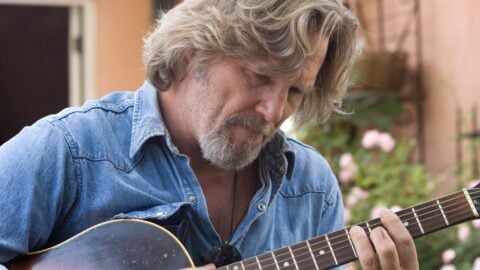Review: Quartet

Quartet, the first feature Dustin Hoffman has officially directed, tells the story of elderly singers who, lacking family and funds, are living out their golden years in the British countryside at Beecham House, a home for retired musicians. Looked after by the lovely Dr. Lucy Cogan (Sheridan Smith), the musicians live well, or as best they can, considering their infirmities, age, and the long-standing professional rivalries that burn as hot as ever. Adapted to the screen by Ronald Harwood from his own 1999 play and inspired by the 1984 documentary Tosca’s Kiss about just such a house founded by the composer Verdi, Quartet offers a provocative glimpse into how an actor of Hoffman’s experience and intensity approaches the transition to directing.
Quartet revolves around three former members of an opera quartet. Wilf (played by Billy Connolly) is a potty-mouthed scalawag who misses no opportunity to proposition the nursing staff (“Fancy-vous a little rumpy pumpy?”), especially the curvaceous and infinitely patient Dr. Cogan. His best friend, the reticent Reggie (Tom Courtenay), a dignified, aloof gentleman who never got over his failed marriage, teaches a course on opera to visiting high schoolers. Their friend and former colleague, the apple-cheeked Cissy (Pauline Collins), whose dementia has increased her childlike love of life and music, spends her days scurrying about listening to the quartet’s old recordings on the Discman she carries like a talisman. Wilf and Reggie look after Cissy, and shield her from louche, imperious Cedric (Michael Gambon), the self-styled musical director who, clad in a caftan, barks directives at the other octogenarians (“Call me Cee-dric!”).

When rumors swirl that someone famous will soon be moving in, an entirely new kind of drama begins. The new arrival turns out to be none other than Jean Horton (ably played by Maggie Smith), the estranged fourth member of the quartet and Reggie’s ex-wife. Hobbled by old age and a bum hip, Jean, never the world’s most flexible person, has become starkly unable to pivot with life, but reunited with her old friends, new versions of old feelings begin to arise. Quartet turns into a meditation on mortality, love, and art as Wilf, Cissy, and Reggie attempt to convince Jean to rejoin the old quartet for a gala performance to shore up Beecham House’s finances.
As a first-time helmer (unless one counts 1978’s Straight Time, which he directed for a few days before handing over the reins to Ulu Grosbard, a decision that he’s said he regrets), Hoffman carefully avoids narrative crescendos. He prefers to direct the audience’s attention to the actors-as-they-work, within spaces that are hard to place—a series of voluminous rooms unlinked by establishing shots. Coherent spatial continuity, especially for interiors, quickly becomes an issue, such that the retirement home feels more conceptual than real.
It’s a conceit that might work well on stage but much less so on screen. During one key scene of dialogue between three characters, the darting camera yields a jumble of unattributable point-of-view shots that would most closely correspond to what randomly seated audience members in a theater would be seeing. If aspects of the mise en scène may be a little too redolent of The Pasadena Playhouse for Quartet’s own good, there are still some really lovely moments, such as one absorbing shot of a spinning record that like the elders the movie depicts, wobbles while it works and yet produces beautiful music.

That Dustin Hoffman, the irrepressible Method actor whose own youthfulness was central to defining youth writ large in films like The Graduate, chose as his directorial debut a film about the elderly is not without significance. Perhaps a golden age of geriatric cinema is upon us, thanks to longer, healthier life spans for a generation of actors, not to mention their fans. Most notable has been Michael Haneke’s multiple award-winner Amour with the Nouvelle Vague–launched Jean-Louis Trintignant and Emmanuelle Riva. Quartet’s Maggie Smith also starred with Judi Dench in The Best Exotic Marigold Hotel, about a group of Brits who move to India for their retirement. This past year, in the overlooked Hope Springs, a dramatic (un)romantic comedy, Meryl Streep and Tommy Lee Jones played empty nesters who seek counseling.
Quartet is a willful if uneven effort that comes together when it counts, sweeping you up in its dogged pathos. One cannot help but be touched by the late-in-life romance conducted by these flawed and passionate people whose proximity to death makes them more fully alive. At one point, one of Quartet’s characters, borrowing from the poet Rainer Maria Rilke, intones: “Works of art are of an infinite loneliness and nothing can reach them so little as criticism.” Hoffman sometimes couches the film in stylistic mannerisms that—tugs at the heartstrings aside—can keep the audience at a remove, but if this film is any indication of his creative capacity as a director, one can only hope that he will pursue his third act with as much vigor as his first.







